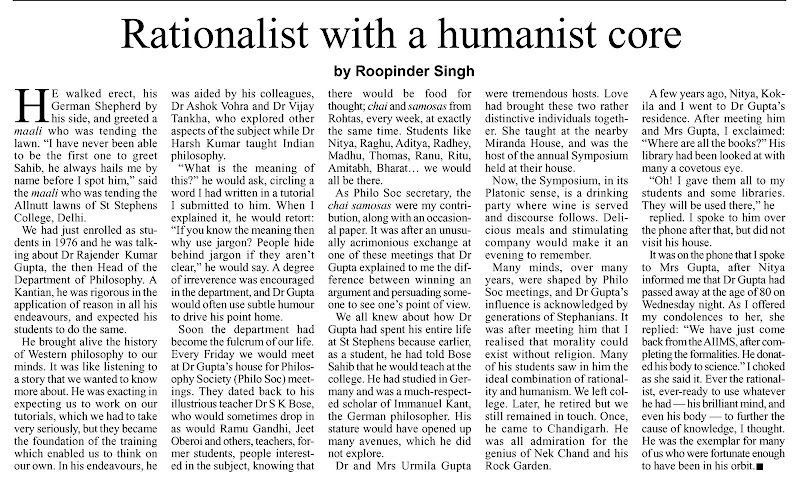HE walked erect, his German Shepherd by his side, and greeted a maali who was tending the lawn. “I have never been able to be the first one to greet Sahib, he always hails me by name before I spot him,” said the maali who was tending the Allnutt lawns of St Stephens College, Delhi.
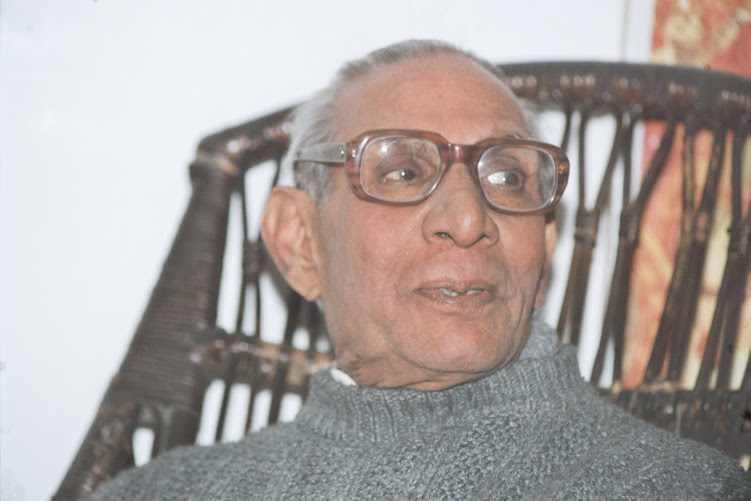
We had just enrolled as students in 1976 and he was talking about Dr Rajender Kumar Gupta (1932-2012), the then Head of the Department of Philosophy. A Kantian, he was rigorous in the application of reason in all his endeavours, and expected his students to do the same.
He brought alive the history of Western philosophy to our minds. It was like listening to a story that we wanted to know more about. He was exacting in expecting us to work on our tutorials, which we had to take very seriously, but they became the foundation of the training which enabled us to think on our own. In his endeavours, he was aided by his colleagues, Dr Ashok Vohra and Dr Vijay Tankha, who explored other aspects of the subject while Dr Harsh Kumar taught Indian philosophy.
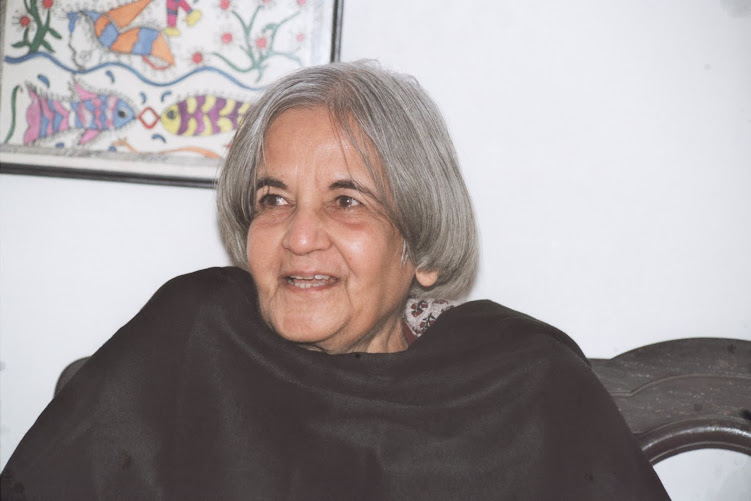
“What is the meaning of this?” he would ask, circling a word I had written in a tutorial I submitted to him. When I explained it, he would retort: “If you know the meaning then why use jargon? People hide behind jargon if they aren’t clear,” he would say. A degree of irreverence was encouraged in the department, and Dr Gupta would often use subtle humour to drive his point home.
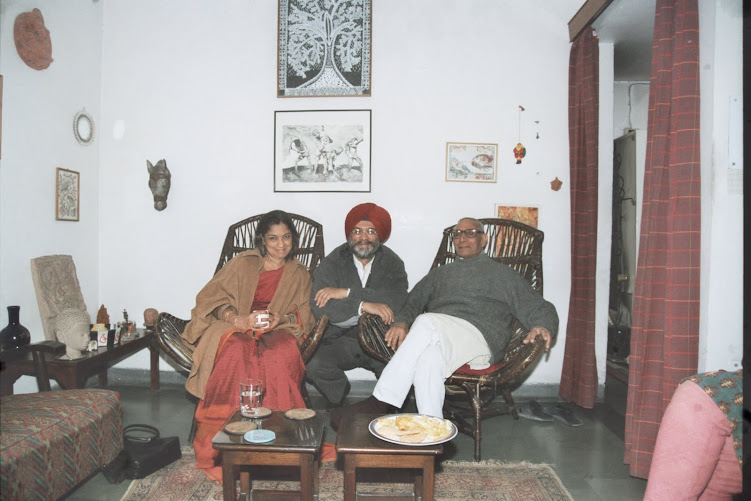
Soon the department had become the fulcrum of our life. Soon the department had become the fulcrum of our life. One day, some Ritu and Sangeeta, tired of the coffee that we would have with at the college café or the Indian Coffee House (ICH) in the university, decided that Dr Gupta must visit the Taj Mahal hotel and have coffee there. He agreed, and together with Madhu off we went. Dr Gupta, after empirical examination of Machan offering, said he still preferred the ICH coffee! He insisted in paying, and left a tip more similar to what he would have at ICH, that an inflated one expected of Machaan’s patrons. We were dumbstruck, but you should have seen the waiter’s simile after Dr Gupta thanked him warmly for taking care of us.
Every Friday we would meet at Dr Gupta’s house for Philosophy Society (Philo Soc) meetings. They dated back to his illustrious teacher Dr S K Bose, who would sometimes drop in as would Ramu Gandhi (read Remembering Ramu and Philosopher’s soul), Jeet Oberoi, Shekhar Singh, and others, teachers, former students, people interested in the subject, knowing that there would be food for thought; chai and samosas ( as well as gulab jamuns, which Madhu has reminded me) from Rohtas (read Nimbu Pani), every week, at exactly the same time. Students like Nitya, Raghu, Aditya, Radhey, Pankaj, Madhu, Thomas, Ranu, Ritu, Amitabh, Bharat… we would all be there.
As Philo Soc secretary, the chai samosas were my contribution, along with an occasional paper. It was after an unusually acrimonious exchange at one of these meetings that Dr Gupta explained to me the difference between winning an argument and persuading someone to see one’s point of view.
We all knew about how Dr Gupta had spent his entire life at St Stephens because earlier, as a student, he had told Bose Sahib that he would teach at the college. He had studied in Germany and was a much-respected scholar of Immanuel Kant, the German philosopher. His stature would have opened up many avenues, which he did not explore.
Dr and Mrs Urmila Gupta were tremendous hosts. Love had brought these two rather distinctive individuals together. She taught at the nearby Miranda House, and was the host of the annual Symposium held at their house.
Now, the Symposium, in its Platonic sense, is a drinking party where wine is served and discourse follows. Delicious meals and stimulating company would make it an evening to remember.
Many minds, over many years, were shaped by Philo Soc meetings, and Dr Gupta’s influence is acknowledged by generations of Stephanians. He did not believe in religion and it was after meeting him that I realised that morality could exist without religion. Many of his students saw in him the ideal combination of rationality and humanism.
We left college. I went to New York, but still remained in touch with him. We wrote letters to each other. I wrote a middle (What about your handwriting) about his comments on my handwriting. Later, he retired but we still remained in touch.
Once, he came to Chandigarh. He was all admiration for the genius of Nek Chand and his Rock Garden. I hosted a tea, in which Stephanians of Chandigarh came to pay their respects to him.
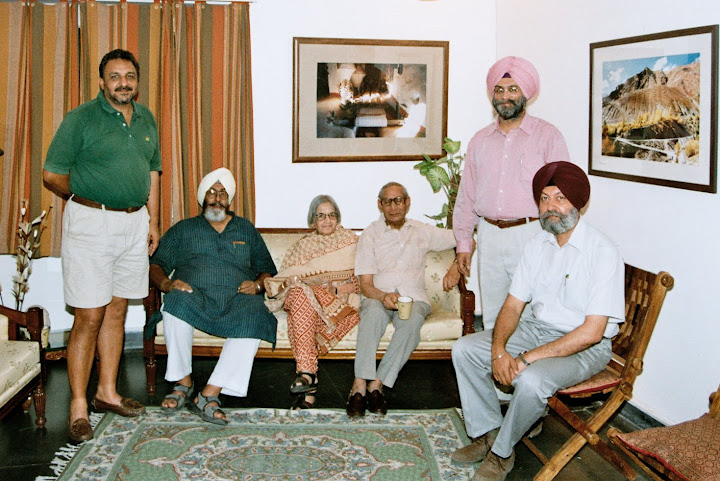
I remember the time he came to the launch of my book Marshal of the Indian Air Force, Arjan Singh DFC on August 14, 2002. The launch was at the FICCI auditorium in Delhi and it was quite far from his house. George Fernandes, the then Defence Minister, was to come and Dr Gupta was quite firm that he would not attend the function if he was subjected to “all the search nonsense.”
He came, as did Dr Vijay Tanhka, Upinder and many friends. I received Dr Gupta at the gate and will never forget the proud look on his face as the book of one of his students was released. He, did, however, chide me gently for having been “over generous” in the way I acknowledged the contribution of the teachers of the Philosophy Department in shaping my mind. For once, I disagreed with him.
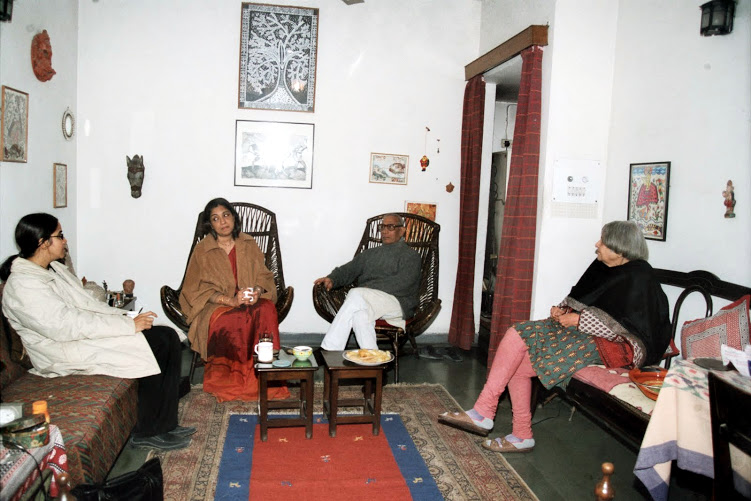
A few years ago, Nitya, Kokila and I went to Dr Gupta’s residence. After meeting him and Mrs Gupta, I exclaimed: “Where are all the books?” His library had been looked at with many a covetous eye.
“Oh! I gave them all to my students and some libraries. They will be used there,” he replied. I spoke to him over the phone after that, but did not visit his house.
It was on the phone that I spoke to Mrs Gupta, after Nitya informed me that Dr Gupta had passed away at the age of 80 on February 15, 2012. As I offered my condolences to her, she replied: “We have just come back from the AIIMS, after completing the formalities. He donated his body to science.” I choked as she said it. Ever the rationalist, ever-ready to use whatever he had — his brilliant mind, and even his body — to further the cause of knowledge, I thought. He was the exemplar for many of us who were fortunate enough to have been in his orbit.
A shorter version of this article by Roopinder Singh was published as a middle in The Tribune on February 18, 2012.
